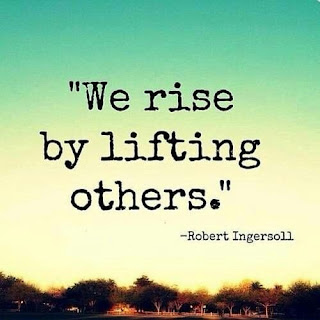Delivering Results
Leadership is about doing your best and bringing out the best in others. This is my favorite definition of leadership, because you don’t have to be the leader in order to be a leader. As leaders, we have the obligation to ensure that our decisions, actions, and resources effectively support the organization’s mission, vision, and values.
Organizational effectiveness is the efficiency in which an organization delivers results. People often ask me about specific ways in which they can contribute to their organization’s effectiveness. Below are two helpful frameworks for exploring this topic.
Cybernetic Leadership
In the book How Colleges Work, Robert Birnbaum describes characteristics of cybernetic leaders:
 |
| The Valley of Fire 2016 |
Know their staff well. They achieve status by being able to sincerely articulate the unspoken concerns of others.
Recognize that listening and influencing are reciprocal in nature. The more we listen to others, the more others listen to us. We influence others by allowing ourselves to be influenced.
Seek out diversity of thought. They find ways to support norms that encourage diversity of thought in discussion and analysis.
Pay substantial attention to the processes through which information is disseminated. To the extent possible, communications should be timely, open, and transparent. Good leaders consistently provide forums for interaction, feedback, and questions.
Demonstrate humility. When facing undesirable behavior, ask “what am I doing that may be influencing what is happening?” (Birnbaum, 1988, p. 210). Upon encountering a problem ask “what is within my power to do to solve this problem that will not create more serious problems in the future?” (p. 211).
Birnbaum also highlights the importance for leaders to recognize and understand culture. Culture determines “what is done, how it is done, and who is involved in doing it” (Tierney, 2008, p. 24). It influences what individuals believe and how they behave. Understanding and honoring culture:
- reinforces belief in supporting the mission;
- helps with understanding and managing an organization;
- leads to a shared understanding of what constitutes excellence;
- reduces the negative effects of adversarial relationships; and
- helps with understanding how to best communicate to various groups.
Translating Leadership into Strong Management
Daniel Stid and Kirk Kramer, partners at the Bridgespan Group, authored a white paper on organizational effectiveness and found that effective organizations demonstrated strength in five areas:
1. Leadership. Leaders must be able to translate their strategic vision into specific goals and action items. They must be highly effective at communicating their vision, strategy, and priorities throughout the organization.
2. Decision making and structure. Pay close attention to decision-making roles and processes in order to make efficient, responsive, and transparent decisions. Doing so will also create a pathway for people to effectively coordinate their work across organizational boundaries.
3. People. It’s paramount for employees to feel that their work aligns with and supports the priorities of the organization. Performance evaluations should be leveraged to ensure employees are evaluated, developed, and rewarded in alignment with the organization’s priorities. In addition, leaders should place an emphasis upon building leadership capacity throughout the organization to assist with leadership transitions and succession.
4. Work processes and systems. Increase employees’ productivity and quality of work by spending time clarifying and refining work processes, and making them explicit and accessible to employees.
5. Culture. Culture is ever-changing and dynamic. Effective leaders find ways to build upon the strengths of an organization’s culture.
 Reflections
Reflections
Being a good leader and manager is the key to organizational effectiveness. Improving and refining your leadership and management skills requires constant inquiry, learning, and practice. It’s all about the journey, not the destination. Each day is a new opportunity to do our best and bring out the best in others.
References
Tierney, W. G. (2008). The impact of culture on organizational decision making (pp. 3-27). Sterling, VA: Stylus Publishing, LLC.
Nicole Schultheis is an innovative executive in higher education hailed by institutions as “Collaborative…Forward Thinking…a Thought Leader.” With more than 20 years of leadership experience at large research universities and the U.S. Army, and a Ph.D. from Saint Louis University, Schultheis is known for her leadership in student success, organizational effectiveness, information technology, and enrollment services. When Schultheis is not being a very busy and sought after administrator, she enjoys traveling, exercising, and experiencing nature.
References
Birnbaum, R. (1988). How colleges work. San Francisco: Jossey Bass.
Tierney, W. G. (2008). The impact of culture on organizational decision making (pp. 3-27). Sterling, VA: Stylus Publishing, LLC.
Nicole Schultheis is an innovative executive in higher education hailed by institutions as “Collaborative…Forward Thinking…a Thought Leader.” With more than 20 years of leadership experience at large research universities and the U.S. Army, and a Ph.D. from Saint Louis University, Schultheis is known for her leadership in student success, organizational effectiveness, information technology, and enrollment services. When Schultheis is not being a very busy and sought after administrator, she enjoys traveling, exercising, and experiencing nature.

